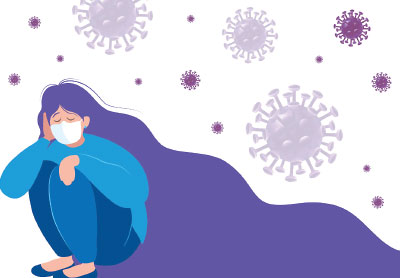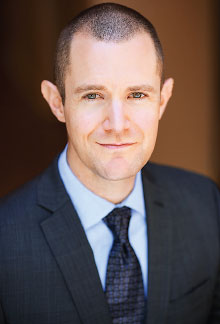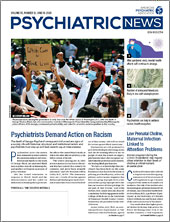Responding to the ongoing disaster that is the COVID-19 pandemic will be “a marathon, not a sprint,” said Joshua Morganstein, M.D., chair of the APA Committee on Psychiatric Dimensions of Disasters, at the virtual APA Spring Highlights Meeting in April.
He is a captain in the U.S. Public Health Service and an associate professor and assistant chair of the Department of Psychiatry at the Uniformed Services University of the Health Sciences.
As with other disasters, the psychiatric morbidities associated with the pandemic are likely to show up well after the first wave of this public health disaster has subsided. “The psychiatric and behavioral impacts of disasters are experienced by more people over a greater geography, across a much longer period of time than all other medical effects combined,” Morganstein said. “If history is any predictor, we should expect a significant tail of mental health needs that extend for a considerable period of time after this event.”
He advised physicians to have a “battle buddy”—a trusted friend or companion who is sharing the experience of responding to this challenge and who can be a reminder of hope and the need to care for oneself. “It’s important to gently remind ourselves that self-care is a critical issue for our patients, our colleagues, and for ourselves,” he said. “Sleep, regular meals, staying hydrated, and exercise improve decision-making and can strengthen our immune system. These are benefits we can all use right now.”
After the meeting, Morganstein told Psychiatric News that health care professionals and the wider public need to brace for additional waves of COVID-19 in the late summer, fall, and beyond. “Anticipating and preparing for additional pandemic waves will require interventions by individuals, organizations, and leaders,” he said.
Morganstein said efforts that help sustain a workforce through successive waves of the pandemic include the following:
•
Addressing self- and family-care needs.
•
Allowing health care professionals recovery time after periods of caring for infected individuals.
•
Ensuring adequate training and equipment.
•
Creating a culture that normalizes grief reactions and encourages help seeking.
•
Providing timely, updated, and effective communication.
Morganstein said the physical and psychological responses to the public health crisis mirror the responses to other disasters: sleep difficulties; decreased sense of safety; somatic symptoms; irritability; abuse of alcohol, tobacco, and prescription medications; and interpersonal conflict.
The unique nature of the pandemic may also engender fear of shortages and scarcity and of long-term isolation and quarantine, he pointed out. Misinformation can spread rapidly, leading to scapegoating and an altered perception of risk. “It is the perception of risk, not the actual risk, that will determine how people behave—whether people stay at home and whether they are willing to accept treatment or a vaccine” for the virus, he said.
Morganstein echoed other speakers at the meeting in advising judicious attention to the media. “The media are an important source of health information that can shape perception and subsequent behavior,” he said. “But the media also transmit fear and stress. We can remind each other to take a media break.”
In comments to Psychiatric News, Morganstein also cited the need for what he called “grief leadership.” He said this is leadership that “acknowledges and honors losses, helps to make meaning of the events, seeks opportunities to identify areas for growth, and supports a community in looking to the future.”
At the Spring Highlights Meeting, he said, “There must be an honest reckoning with this [suffering]—with kindness, generosity, and human connection. We need to remind people that eventually this will end and that the vast majority of people, including those who encounter difficulties along the way, will ultimately be OK.” ■


